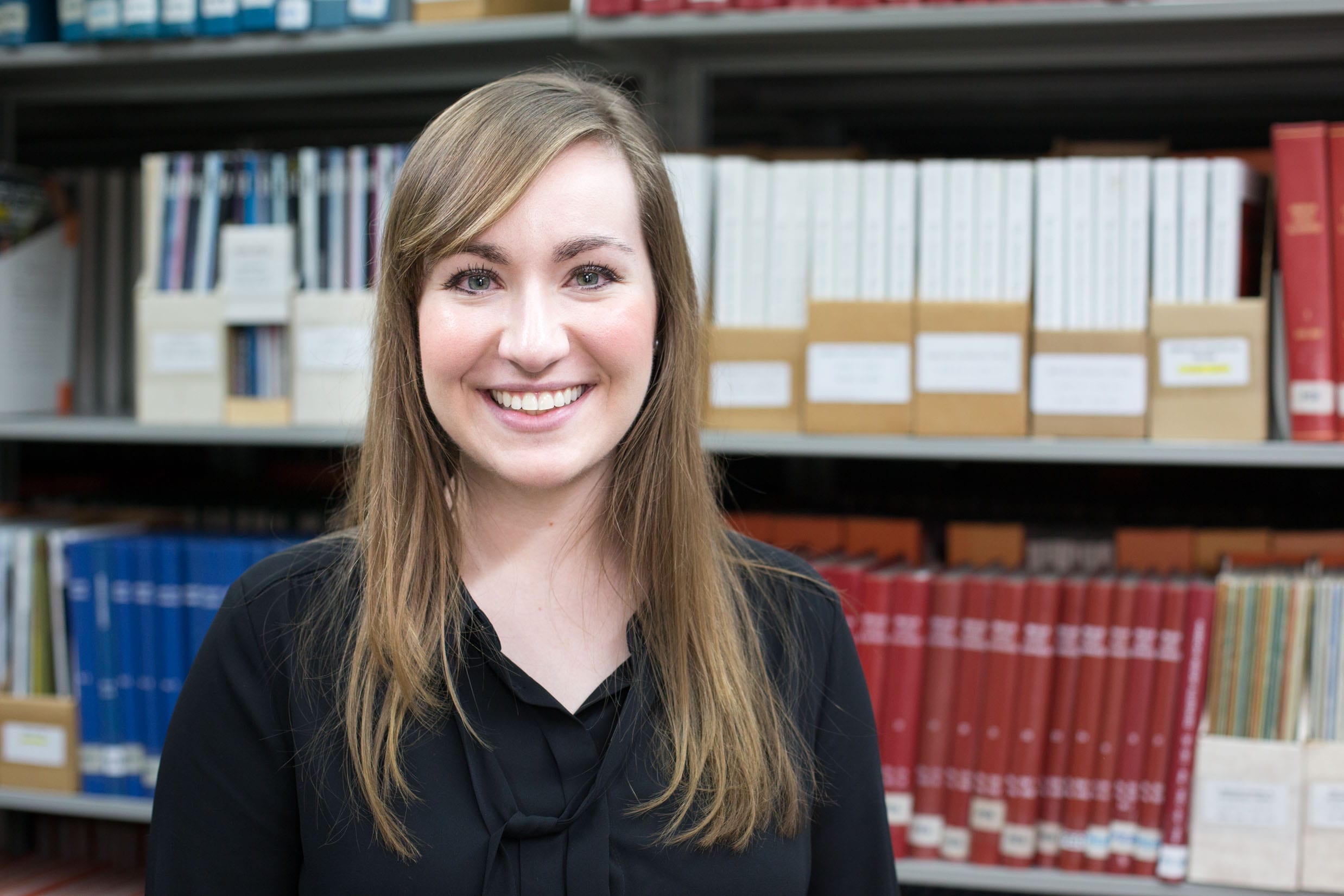Reading time: 4 minutes
When Lauren Kuechenmeister, ’16, arrived at Maryville University as an undergraduate student, she knew she wanted to counsel people, perhaps one couple or one family at a time. But she soon discovered a passion for advising entire organizations.
Kuchenmeister studied psychology, with an emphasis in industrial-organizational psychology. Improving workplace culture is increasingly important as today’s 9-to-5 stretches out on both ends, she says.
“Some people spend more time at work than with their families or even sleeping,” Kuechenmeister says. “I want to make sure they wake up in morning and like what they’re doing, and understand how it makes a difference.”
Improving Organizational Success
Kuechenmeister, who is pursuing an MBA at Maryville, works as an intern at Scottrade in the learning and development department, where she coordinates leadership programs.
But even before the Oakville, Mo., native began working in the field, she hit the ground running. In an organization consulting class in the fall of 2015, she collaborated on a project with the Missouri chapter of the Make-A-Wish Foundation®.
The class is part of a new minor at Maryville in industrial-organizational psychology, a rapidly growing field that applies psychological science to improve an organization’s effectiveness and employees’ well-being. Students in the consulting course help a nonprofit client organization identify solutions to problems by assessing individual, group or organization dynamics.
Shirley Ashauer, PhD, associate professor of psychology, saw this in-the-trenches program as a place where Kuechenmeister could thrive.
“Lauren is comfortable with ambiguity and can think on her feet,” Ashauer says. “Students like her come away with the benefits of that direct interaction with clients as well as a conceptual understanding of psychological science applied to the workplace.”
Kuechenmeister served as a lead consultant on the Make-A-Wish® project, helping to design an engagement survey for volunteers who work with terminally ill children and their families. The results showed volunteers needed more communication with the staff, says Stephanie Hampton-Boeglin, a Make-A-Wish® vice president.
“It was extremely helpful; we changed our structure based on that survey,” Hampton-Boeglin says. “And we still use that same format today.”
Kuechenmeister savors the fact that her work will continue to impact the foundation.
“Knowing it makes a difference is a huge win for me,” Kuechenmeister says. “When you think of college classes, you think of reading and homework but this is about applying what we’ve learned and realizing the organization will use this for years down the road.”
Achieving Meaningful Results
Kuechenmeister also conducted on a survey project last spring with the National Association for Campus Activities (NACA) as part of an advanced consulting psychology course.
For several years, the organization had experienced a steady drop in membership. Kuechenmeister and her team created an engagement assessment that illuminated why NACA is valuable to its member schools. Emphasizing those benefits produced quick results, says Brian Gardner, Maryville’s director of student involvement and immediate past president of NACA.
“Last year was the first time in a decade and a half that we saw a stop in decline,” Gardner says.
For Kuechenmeister, the outcome is gratifying, but the real joy stems from the human interaction.
“The most exciting thing for me is working closely with clients,” Kuechenmeister says. “They were enthusiastic in both projects about the work we were doing.”
Gardner wasn’t surprised by Kuechenmeister’s success. “I felt confident Lauren would handle the project well, see it through to completion and ensure we were achieving our goals,” he says.
Ashauer also saw Kuechenmeister’s potential early on.
“She was more than up to the task,” Ashauer says. “It’s amazing for someone so young to be able to challenge people in such senior positions with the intention to help them and their organizations improve and become more successful.”
Kuechenmeister continues to challenge herself as she works toward her higher education goals. She’s grateful for the professional immersion and real-world experience Maryville provided during her undergraduate years and has gained valuable insight.
“My personal philosophy is you can learn something from every experience,” Kuechenmeister says. “It’s exciting that these experiences were much more than classroom projects.”
 Lauren Kuechenmeister.H
Lauren Kuechenmeister.H